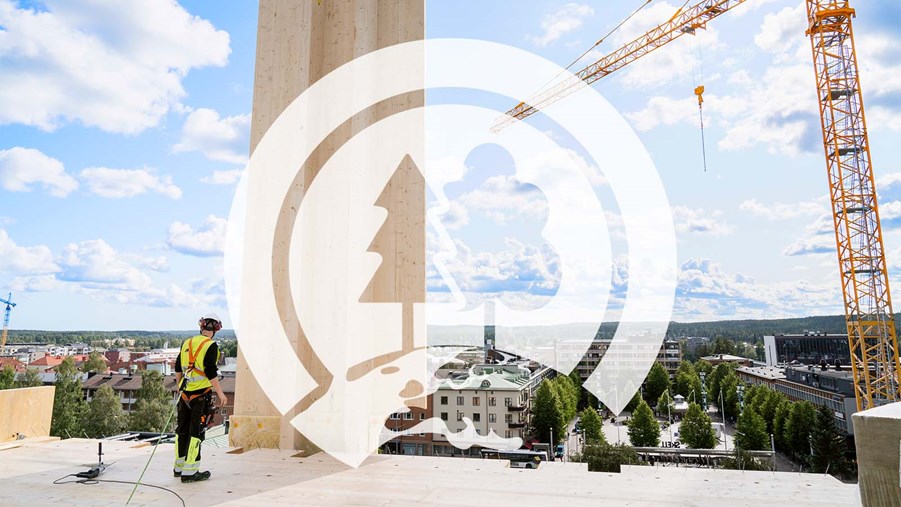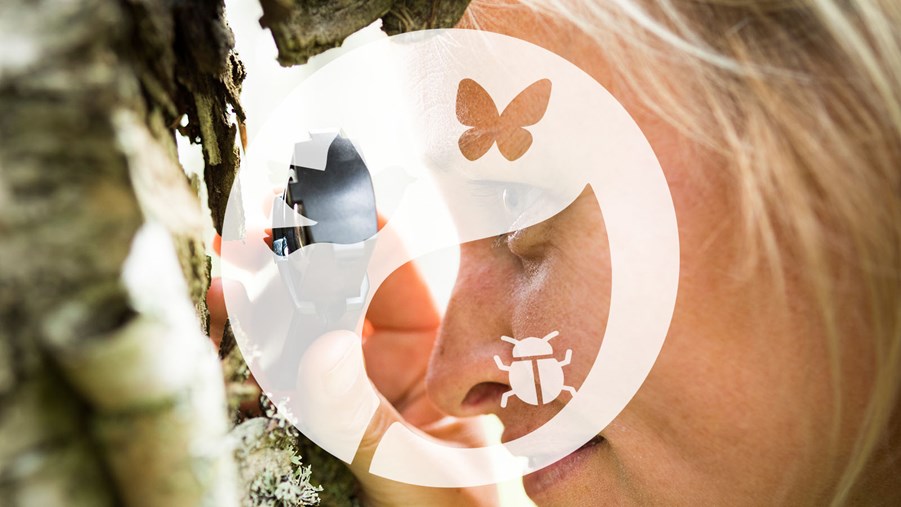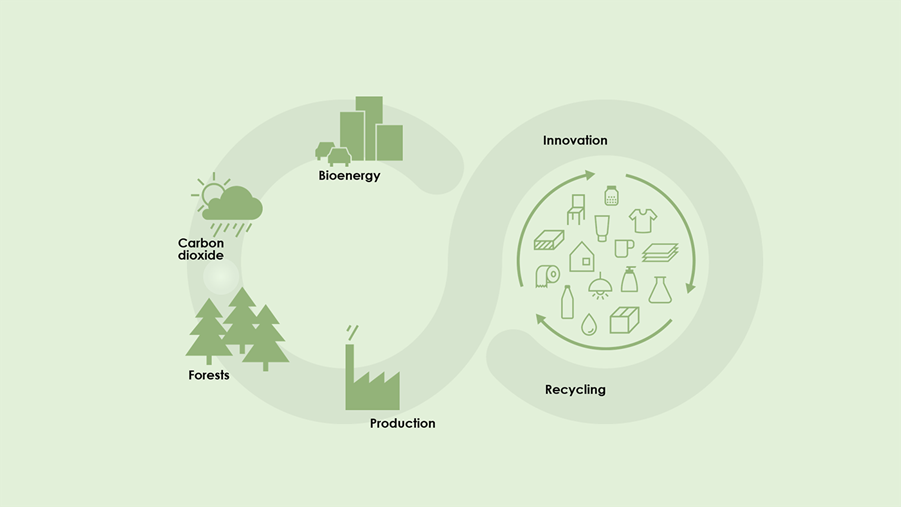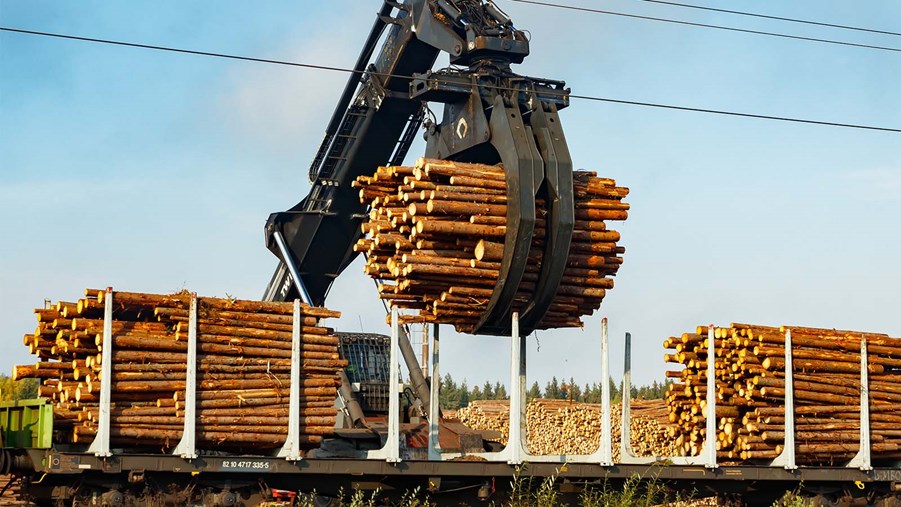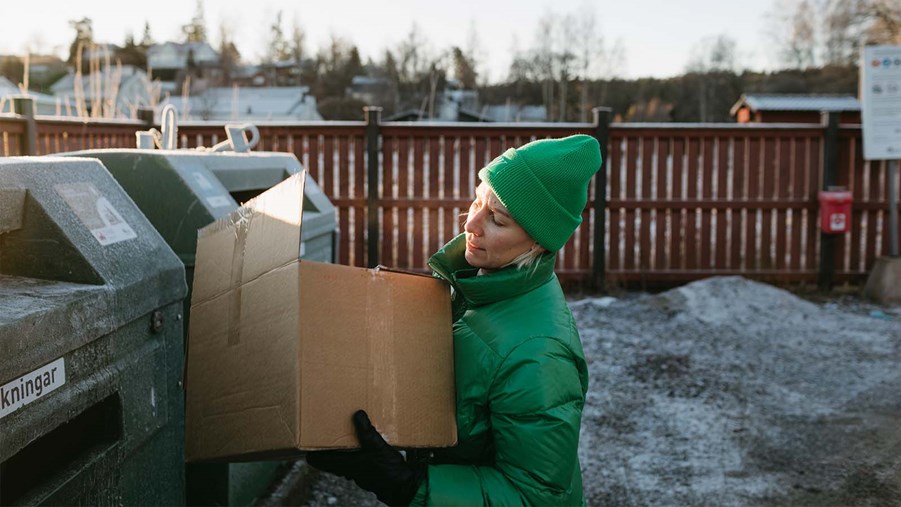
Renewable resources are needed in a circular society. Some of these resources are infinite – such as wind power and solar energy. Others are bio-based, i.e., can be grown and planted – such as trees and plants. Renewable wood fibre can be recycled multiple times. Society needs to benefit from this as much as possible. The forest industry wants to get the most out its products by ensuring that they can be recycled several times.
We strive to refine our materials and products so that they are easy to recycle multiple times. For certain materials, wooden building materials in particular, we also want to contribute to increased reuse. In order to achieve a completely renewable value chain, we must also phase out the use of fossil fuels in our domestic transport.
Steps along the way
Fully fossil-free products
Raw materials and large parts of the forest industry’s production of its products are fossil-free. We are now focusing on what remains. Some products contain fossil materials. These will be replaced with bio-based materials. By 2035, we will have completely fossil-free products.
Fully fossil-free transport
As Sweden’s largest transport buyer, the forest sector wants to be an active and important player in driving progress towards a transition to fossil-free transport in Sweden by 2040. This can be achieved with the help of renewable fuels, electric vehicles and greater use of rail in combination with improved efficiency.
Fully reusable wood products
When a building is demolished or rebuilt, wood-based building materials can be reused to a much greater extent than is currently the case. A large number of construction industry actors need to co-operate on this. From our side, we can, for example, contribute with building materials that are easy to reuse for a longer lifespan. This could involve modular systems that are easy to dismantle and reuse in new buildings, or increased traceability so that information about individual building components is readily available. By 2030, our wood products must be fully reusable.
Fully recyclable products
Cardboard and paper packaging have high collection and recycling rates in Sweden and across the EU, at between 80 and 85 per cent. Recycling rates are lower for sawn wood products. To encourage people to recycle more, the forest industry must ensure that the materials and products we manufacture, including planks and boards, are easier to recycle. They must be fully recyclable by 2030.
Key conditions
To fulfil our pledges, we will need help along the way. Here are several such measures that need to be put in place. Together, we are shaping the future!
- The perception of waste needs to be changed as well as associated legislation. What we currently refer to as waste is an important resource in the circular society.
- Increased research in process and product development.
- Optimised transport and goods flows throughout the entire value chain.
- Development of more fossil-free chemicals and inputs.
- Amended and improve regulations and standards so that they facilitate recycling.
- Support for the transition to renewable, fossil-free and circular products.
- Increased maintenance of infrastructure, mainly road and rail.
- Increased availability of biofuels at competitive prices, a fossil-free electricity system with a high degree of capacity in the grid and the continued development of electric vehicles with a focus on heavy trucks and machinery.
- Cross-sector collaborations that enable the reuse of building materials.
- Establish faster and more predictable permit processes.

